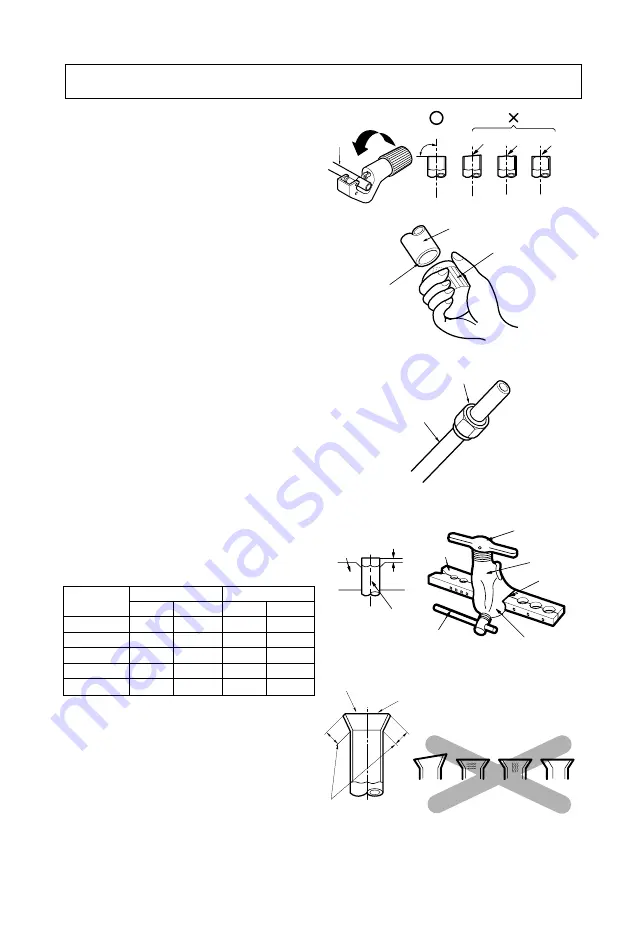
12
3-1. Preparation of Piping
3. Connecting Pipes to the Indoor Unit
Main cause of gas leakage is defect in
flaring work. Carry out correct flaring work
in the following procedure.
1) Cut the pipes and the cable.
■
Use the accessory piping kit or the pipes
purchased locally.
■
Measure the distance between the
indoor and the outdoor unit.
■
Cut the pipes a little longer than
measured distance.
■
Cut the cable 1.5m longer than the pipe
length.
2) Burrs removal
■
Completely remove all burrs from the cut
cross section of pipe/tube.
■
Put the end of the copper tube/pipe to
downward direction as you remove burrs
in order to avoid to let burrs drop in the
tubing.
3) Putting nut on
■
Remove flare nuts attached to indoor
and outdoor units, than put them on
pipe/tube having completed burr
removal.
(Not possible to put them on after flaring
work)
4) Flaring work
■
Carry out flaring work using flaring tool
as shown below.
Firmly hold copper tube in a bar(or die) as
indicated dimension in the table above.
5) Check
■
Compare the flared work with figure.
■
If flare is noted to be defective, cut off
the flared section and do flaring work
again.
Copper
tube
90
°
Slanted Uneven Rough
Pipe
Reamer
Point down
Flare nut
Copper tube
Bar
Copper pipe
Clamp handle
Red arrow mark
Cone
Yoke
Handle
Bar
"A"
Inclined
Inside is shining without scratches.
Smooth all round
Even length
all round
Surface
damaged
Cracked Uneven
thickness
= Improper flaring =
Outside Diameter
" A "
Gas
Liquid
Gas
Liquid
18K BTU/h(50Hz)
5/8"
1/4"
0.8~1.0
0~0.5
24K BTU/h
5/8"
1/4"
0.8~1.0
0~0.5
30K/36K BTU/h
5/8"
3/8"
0.8~1.0 0.5~0.8
42K/48K BTU/h
3/4"
3/8"
1.0~1.3 0.5~0.8
60K BTU/h(50Hz)
3/4"
1/2"
1.0~1.3 0.5~0.8
Capacity






































